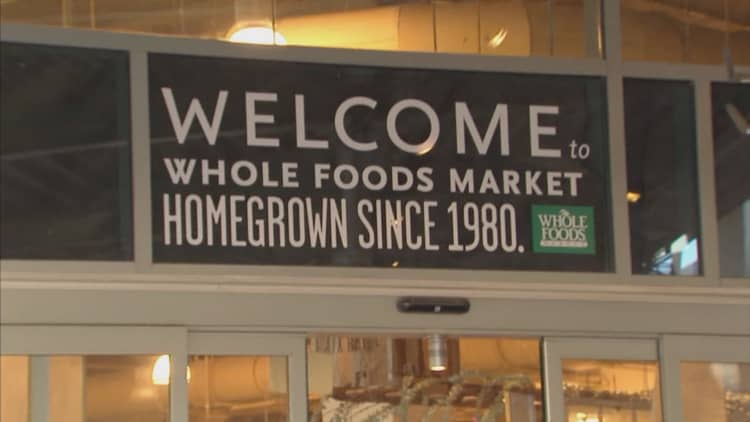
Whole Foods was slapped with a warning letter from the Food and Drug Administration earlier this month after the FDA found "serious violations" of federal regulations during an inspection of the company's food preparation facility in Massachusetts.
FDA inspectors reportedly found various food products, including mushroom quesadillas, chives, beets and couscous that were exposed in areas where condensate was leaking from ceiling joints, doorways, pipes and fans.
In addition, the FDA cited that Whole Foods employees failed to sanitize food prep stations, did not change gloves or wash hands between tasks and did not take caution to prevent cleaning supply fluid from touching ready-to-eat products.
"We were honestly surprised," Ken Meyer, executive vice president of operations for Whole Foods Market, said in a statement. "We've been in close contact with the FDA, opened our doors to inspectors regularly since February and worked with them to address every issue brought to our attention."
While the company responded to the FDA's initial "inspection observations" back in March, the FDA said it deemed Whole Foods' response unacceptable.
"Your response includes retraining of employees as a corrective action for most of the observed violations but you failed to mention adequate supervision over your specialized food processing operations and how retraining will ensure sustained compliance," the FDA wrote in the warning letter. "We do not consider your response acceptable because you failed to provide documentation for our review, which demonstrates that all your noted corrective actions have been effectively implemented."
Whole Foods was given 15 days to respond to the FDA after receiving the warning letter. The letter was dated June 8.
The company has faced backlash in recent years due to concerns about slowing sales, health scares and accusations that the grocery chain was overcharging customers. Whole Foods stands to lose even more as rival supermarkets and ready-to-eat companies — think Blue Apron — clutter the category.
An increasing number of supermarkets, dubbed "grocerants" — grocery restaurants — are stocking shelves with prepared foods and offering in-store dining, according to a recent study by The NPD Group.
Whole Foods had once dominated this market, but is slowly succumbing to the tough competition of retailers like Wegmans, Publix and Trader Joe's that have adapted to the ready-to-eat trend.
Since 2008, in-store dining and prepared foods have grown nearly 30 percent in groceries — accounting for 2.4 billion foodservice visits and $10 billion in consumer spending in 2015, NPD said.
Shares in Whole Foods dipped nearly 3 percent during trading hours on Tuesday.


